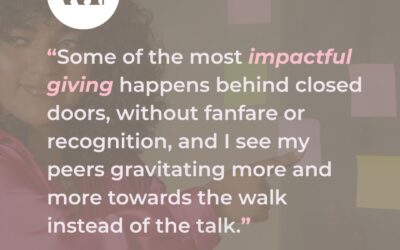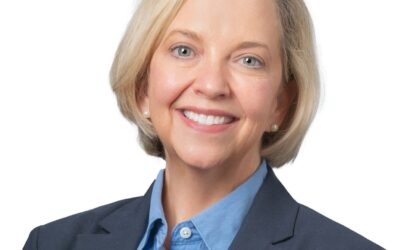During the Pandemic, the Women’s Fund was challenged to rapidly understand the needs of and provide support for our Network nonprofit partners. Network members are being funded by the Women’s Fund over three years as we work to make change in barriers to “access to post-secondary education” across East Tennessee. Consequently we have extended our phased timeline to accomplish this body of work provided to give a period of relief while new and pressing needs are being addressed. We also provided a much needed forum to share needs and ideas as each agency pivots to the pandemic emergencies of those they serve.
On April 9th the Network members, hosted by the Women’s Fund, gathered by Zoom to share their needs, observations, emergent social concerns and solutions during the pandemic. Listed below are the top issues our Network members face and their initial impact on our vision to see that all low-income girls have the opportunity for post-secondary education:
Ronni Chandler, ED/CFO, Project Grad:
The food insecurity and digital divides that already existed have been greatly magnified by this pandemic. As we focus on helping kids and families navigate basic survival (of paramount concern), we are partnering with the school system and community partners to help our students and families become aware of and understand available resources and academic decisions. Summer learning loss is now magnified by an additional loss of time. All higher education institutions moved classes online and our post-secondary success coaches are focusing on helping our post-secondary scholars adjust to this instructional format and remain connected for social and emotional support. (Project GRAD Knoxville serves elementary through post-secondary.) Our graduating seniors, both high school and post-secondary, are missing so many opportunities for closure and milestone celebrations. Our hearts hurt for them. The ripple effect of this pandemic will be long lasting and affect our schools well beyond summer. The continued support of the overall community is appreciated and will continue to be needed.
Kirby Deal, Executive Director, Girls, Incorporated of TN Valley:
As a an after school and summer program that focuses on educational enhancement that encourages girls to pursue post-secondary education, we have found it difficult over the past few weeks to keep our girls engaged and interested in furthering their education during what is a difficult time for them. Many of the girls we serve have preexisting issues in their homes like low-income and food insecurity, so it is difficult for them to focus on education when these worries are increased. Our three biggest needs right now are increased capacity for virtual programming (both for our organization and for girls’ themselves), increased technology for our girls (laptops, iPads, etc.), and funding to provide these services and keep staff. We have now cancelled two (large fundraisers for our organization and are very reliant on cash reserves at this time. Despite tough economic times, we are optimistic that the work we are doing is still impacting girls in our community and encouraging them to pursue their current education and set them up for a positive experience with post-secondary education in the future!
Kathy Mack, Director, YWCA Phyllis Wheatley Center & Alizza Punzalan-Randle, CEO, YWCA Knoxville and the Tennessee Valley:
YWCA is aware that academics will be the schools’ highest priority to ensure students return to certain academic levels. We also know the increased time spent at home (for some, in precarious situations) may cause some students to need YWCA Phyllis Wheatley Center youth programming and wraparound services more than ever. We stand ready to highly encourage schools and parents to enroll students in YWCA programs focused on coping with trauma, building job skills, and reducing chronic absenteeism to ensure each student’s path to academic success.
Daniel Watson, Executive Director, The Restoration House:
The Restoration House, as well as many other family development organizations, have needed to pivot to relief during the COVID-19 pandemic, which is completely appropriate during a crisis. However, we are especially concerned as folks rush to get back to “normal” that we aren’t taking the time to help our more vulnerable populations and especially our young people work through the traumatic impacts of the pandemic on their social, emotional, and mental health. Many are scared, unsure, grieving, depressed and more. It is imperative for those of us who are allies with the vulnerable to not be too quick to go back to normal without first helping our friends process all that has happened and is happening.
Kellie Asberry Walker, Executive Director, Children’s Center of the Cumberlands:
Prior to the COVID-19 pandemic, Scott County was number three in the state of TN for unemployment. Jobs have been scarce in our area and more families were relying on government and community assistance for basic needs. Since the pandemic, our small rural Appalachian community has suffered greatly. Essential jobs in our areas are mostly taken by those who hold some type of higher education, and who have higher paying jobs, while everyone else is with no work and no income. Many families have contacted us to ask if we can help them with unemployment claims, simply because they have a hard time with their limited education navigating the process online. Their limited access to the internet and their inability to understand what’s being asked of them has made it challenging for many. In addition to this need, food and basic household supplies are being requested by the families we serve. Most rely on their children eating at school for at least two meals a day, and due to the cost associated with feeding their family and the limited access to a grocery store in our area, families have struggled to meet these needs.
Ashlee Price, Boys & Girls Club of Tennessee Valley:
For us, working with 9th-12th grade students we have adjusted how we serve our kids by going completely virtual which speaks the kids’ language. We conduct virtual meetings, tutoring sessions and send a plethora of emails and text messages. However, a challenge has been connecting virtually because many of our students don’t have access to WiFi at home or only have limited access on their phones. If they do have an Internet connection it tends to be a slower, unstable connection. We have also discussed making our facility available for student access, but transportation becomes an issue. We have also noticed that home environments are not conducive for learning as many families have very busy homes with multiple children. Our students find it difficult to find a quiet place for meetings or tutoring sessions.
Ginny Wright, CEO, Boys & Girls Club of Elizabethton/Carter County:
The entire world has been affected by an unknown virus and the Boys & Girls Club of Elizabethton/Carter County is no different. We had to shift our traditional services to virtual services and focus even more on providing for the basic needs of the families we serve. Now, we are focused on reopening our summer program in a safe way. This will mean that we will be serving considerably fewer girls and young women and we most likely won’t be taking our traditional summer college visits. As we move forward, it will be more important than ever for us to find innovative ways to reach more girls with more impact.
Claudia Caballero, President & CEO, Centro Hispano:
My biggest concern with COVID is the financial impact it’s having on families, I worry that young women might delay their entrance to college to help families cover basic expenses. And delaying college oftentimes dissuades young people from going once they have started lives, gone into debt, and started making money. As far as our work at Centro, we are adding work we have never done before without additional funds to support the work. We aren’t going to be celebrating the Latino Awards this year, and that is a decrease in our income of $75,000 net. On a good note, we are hiring a vista who is bilingual and bicultural that will serve as a post-secondary coordinator this coming year! Someday I will be able to create a permanent position, but for now- I count our little wins.




